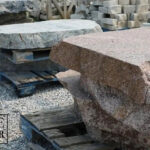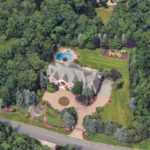Is Camp Rock Real? No, Camp Rock, the iconic Disney Channel movie, isn’t a real summer camp, but it does capture the spirit of self-discovery and friendship many campers experience. While Camp Rock exaggerates some aspects for entertainment, real-life camps like those you can explore at rockscapes.net offer authentic outdoor adventures and opportunities for personal growth.
This article delves into the reality of summer camps versus the movie magic of Camp Rock, exploring the similarities and differences while highlighting the unique offerings of camps that focus on nature and outdoor activities, like those involving unique rock formations. By understanding the nuances between fiction and reality, you’ll gain a better appreciation for the benefits of both the movie and the actual summer camp experience, possibly even inspiring you to explore real rockscapes in your own backyard.
1. Understanding the Camp Rock Phenomenon
1.1 What is Camp Rock and Why Does it Resonate?
Camp Rock, released in 2008, is a Disney Channel Original Movie centered around a summer music camp where aspiring young musicians hone their talents. The film stars Demi Lovato as Mitchie Torres, a musically gifted teen who dreams of becoming a professional singer, and Joe Jonas as Shane Gray, a pop star sent to Camp Rock to improve his public image.
The movie’s plot revolves around Mitchie’s struggles with self-confidence, her journey to find her voice, and the budding romance between her and Shane. Interwoven are themes of friendship, competition, and the importance of being true to oneself.
Camp Rock resonated with audiences, particularly young teenagers, for several reasons:
- Relatable Characters: The characters in Camp Rock face challenges that many teenagers experience, such as navigating social dynamics, dealing with insecurities, and pursuing their passions.
- Catchy Music: The movie features a soundtrack of upbeat, catchy pop songs that became instant hits.
- Escapism: Camp Rock offers an escape into a world of music, friendship, and summer fun, which is appealing to viewers seeking entertainment and a temporary respite from their everyday lives.
- Disney’s Brand: As a Disney Channel Original Movie, Camp Rock benefited from the brand’s established reputation for family-friendly entertainment and high production quality.
1.2 The Enduring Legacy of Camp Rock
Despite being released over a decade ago, Camp Rock continues to hold a special place in the hearts of many who grew up watching it. The movie’s popularity spawned a sequel, Camp Rock 2: The Final Jam, as well as a successful soundtrack and merchandise line.
Beyond its commercial success, Camp Rock has had a lasting impact on popular culture. The movie helped launch the careers of Demi Lovato and the Jonas Brothers, solidifying their status as teen idols. It also contributed to the resurgence of musical television films, paving the way for other successful franchises like Teen Beach Movie and Descendants.
The film’s themes of self-acceptance and pursuing one’s dreams continue to resonate with audiences today. Camp Rock serves as a nostalgic reminder of a simpler time for many, while also offering a timeless message about the importance of staying true to yourself.
2. The Reality of Summer Camps: Beyond the Movie Screen
2.1 A Glimpse into Authentic Summer Camp Experiences
While Camp Rock offers an idealized portrayal of summer camp, the reality of attending a summer camp is often quite different. Summer camps come in various forms, each offering unique experiences.
Traditional summer camps, like Camp Foley, emphasize outdoor activities, skill-building, and personal growth. Campers participate in activities such as swimming, hiking, canoeing, archery, and arts and crafts. They learn to work as a team, develop leadership skills, and build lasting friendships.
Specialty camps focus on specific interests, such as sports, music, art, or science. These camps provide campers with the opportunity to immerse themselves in their passions, learn from experts, and connect with like-minded individuals.
Adventure camps take campers on outdoor expeditions, such as backpacking trips, rock climbing expeditions, and white-water rafting adventures. These camps challenge campers physically and mentally, fostering resilience, independence, and appreciation for the natural world.
Regardless of the type of camp, most summer camps share several common characteristics:
- Community: Summer camps create a sense of community where campers feel accepted, supported, and valued.
- Outdoor Activities: Summer camps provide opportunities for campers to spend time outdoors, connecting with nature and engaging in physical activity.
- Skill Development: Summer camps help campers develop new skills, whether it’s learning to swim, play an instrument, or build a campfire.
- Personal Growth: Summer camps encourage campers to step outside their comfort zones, take risks, and discover their strengths.
2.2 Comparing Camp Rock to Real-Life Camps
While Camp Rock captures the fun and excitement of summer camp, it also exaggerates some aspects for entertainment purposes. Here’s a comparison of some key elements:
| Feature | Camp Rock | Real-Life Camps |
|---|---|---|
| Focus | Music performance, romance | Skill-building, outdoor activities, personal growth, rockscapes |
| Activities | Singing, dancing, songwriting | Swimming, hiking, canoeing, archery, arts and crafts, rock climbing, nature exploration |
| Setting | Glamorous, pristine | Rustic, natural |
| Supervision | Minimal | Constant supervision by counselors |
| Technology | Cell phones, laptops allowed | Technology-free or limited access |
| Social Dynamics | Competitive, dramatic | Collaborative, supportive |
| Cabin Amenities | Cozy, decorated cabins | Simple, functional cabins |
| Spontaneity | Elaborate, choreographed musical numbers | Spontaneous singalongs, campfire skits |
| Inclusivity | Emphasis on celebrity and talent | Welcoming and celebrating individual differences. |
Real-life camps offer a more authentic and well-rounded experience than the idealized version depicted in Camp Rock.
3. Rockscapes: Exploring the Beauty of Nature at Camp
3.1 The Role of Natural Rock Formations in Camp Settings
Beyond the traditional camp activities, many camps, especially those located in areas with diverse geology, incorporate natural rock formations into their programs. These rockscapes offer a unique opportunity for campers to connect with nature, learn about geology, and engage in exciting outdoor adventures.
Rock formations can enhance the camp experience in various ways:
- Scenic Beauty: Rock formations add to the natural beauty of the camp setting, creating a visually stunning backdrop for activities and relaxation.
- Educational Opportunities: Rock formations provide a natural classroom for learning about geology, ecology, and local history.
- Recreational Activities: Rock formations offer opportunities for activities such as rock climbing, bouldering, hiking, and exploring caves.
- Spiritual Connection: Immersing oneself in nature, surrounded by ancient rock formations, can foster a sense of awe, wonder, and spiritual connection.
3.2 Types of Rockscapes Found at Camps
The types of rockscapes found at camps vary depending on the region and geological history of the area. Some common examples include:
- Granite Outcrops: These formations are common in mountainous regions and offer excellent opportunities for rock climbing and bouldering.
- Limestone Cliffs: Limestone cliffs are often found near bodies of water and can be explored by hiking or kayaking.
- Sandstone Formations: Sandstone formations are known for their unique shapes and colors, created by centuries of wind and water erosion.
- Volcanic Rock: Volcanic rock formations are found in areas with volcanic activity and can be explored by hiking or guided tours.
- Caves and Caverns: Caves and caverns offer a mysterious and exciting environment for exploration, often containing unique geological features and wildlife.
3.3 Camps that are known for their rockscapes in the USA
| Camp Name | State | Rockscape Features | Activities |
|---|---|---|---|
| Rockmont | North Carolina | Boulders and Cliffs | Rock climbing, hiking |
| Chewonki | Maine | Coastal Rocks | Tide pool exploration, nature hikes |
| Kingswood Camp | Maine | Granite outcroppings | Hiking, bouldering, scenic views |
| Camp Menominee | Wisconsin | Bouldering Walls | Climbing competitions |
| Camp High Rocks | North Carolina | Cliffs, Bluffs, Waterfalls | Rock climbing, Rappelling |
3.4 Integrating Rock Activities into the Camp Program
Camps can integrate rock-related activities into their programs in various ways:
- Rock Climbing and Bouldering: Camps can offer rock climbing and bouldering programs for campers of all skill levels, taught by certified instructors.
- Geology Hikes: Camps can lead guided hikes to explore local rock formations, teaching campers about geology and local history.
- Cave Exploration: Camps can organize guided tours of local caves and caverns, providing campers with a unique and educational experience.
- Nature Photography: Camps can encourage campers to capture the beauty of rock formations through nature photography, fostering creativity and appreciation for the natural world.
- Rock Art: Camps can incorporate rock art projects into their arts and crafts programs, allowing campers to express their creativity using natural materials.
By incorporating rockscapes into their programs, camps can provide campers with unique and enriching experiences that foster a deeper connection with nature.
4. From Reel to Real: Connecting Camp Rock Ideals with Authentic Experiences
4.1 Identifying the Positive Messages of Camp Rock
Despite its exaggerated portrayal of summer camp, Camp Rock does convey several positive messages that resonate with real-life camp experiences:
- Self-Discovery: Camp Rock emphasizes the importance of finding your voice and being true to yourself, which is a common theme at summer camps where campers are encouraged to step outside their comfort zones and explore their passions.
- Friendship: The movie highlights the value of friendship and the support that friends can provide, which is a central aspect of the summer camp experience where campers form close bonds with their peers.
- Pursuing Dreams: Camp Rock encourages viewers to pursue their dreams and never give up on their goals, which is a message that resonates with campers who are inspired to develop new skills and pursue their passions.
- Overcoming Insecurities: The movie addresses the challenges of overcoming insecurities and self-doubt, which is a common struggle for teenagers and a theme that is often addressed at summer camps where campers are encouraged to build confidence and self-esteem.
4.2 Finding these Ideals in Real Camp Settings
These positive messages can be found in real camp settings through various activities and programs:
- Talent Shows: Real-life camps often have talent shows where campers can showcase their skills and talents, just like in Camp Rock.
- Group Activities: Team-building activities and group projects encourage campers to work together, support each other, and build friendships.
- Counselor Mentorship: Camp counselors serve as mentors and role models, providing campers with guidance, support, and encouragement.
- Positive Reinforcement: Camps create a positive and supportive environment where campers are praised for their efforts, regardless of their skill level.
4.3 Choosing a Camp that Aligns with Your Values
When choosing a summer camp, it’s important to consider your values and what you hope to gain from the experience. Here are some tips for finding a camp that aligns with your values:
- Research Different Camps: Explore different types of camps, such as traditional camps, specialty camps, and adventure camps, to find one that matches your interests.
- Read Reviews and Testimonials: Read reviews and testimonials from former campers and parents to get a sense of the camp’s atmosphere and values.
- Visit the Camp (If Possible): If possible, visit the camp before enrolling to get a feel for the environment and meet the staff.
- Ask Questions: Don’t hesitate to ask the camp director or staff questions about their program, values, and philosophy.
- Consider Your Child’s Interests: Choose a camp that aligns with your child’s interests and passions, as they are more likely to have a positive experience if they are engaged in activities they enjoy.
By carefully considering your values and researching different camps, you can find a summer camp that provides a positive, enriching, and memorable experience.
5. Integrating Rockscapes into Your Own Backyard: Rockscapes.net Inspiration
5.1 Bringing the Beauty of Natural Stone Home
Inspired by the rockscapes you might find at a summer camp, you can bring the beauty of natural stone into your own backyard. Rockscapes.net offers a wealth of information and inspiration for creating stunning outdoor spaces that incorporate natural stone.
5.2 Ideas for Incorporating Rock into Landscaping
Here are some ideas for incorporating rock into your landscaping:
- Rock Gardens: Create a rock garden featuring various types of rocks, succulents, and drought-tolerant plants.
- Stone Pathways: Build a pathway using natural stones, such as flagstone or river rock.
- Water Features: Add a water feature with rocks and waterfalls to create a tranquil and inviting space.
- Retaining Walls: Use natural stone to build retaining walls, adding both beauty and functionality to your landscape.
- Fire Pits: Create a fire pit surrounded by rocks, providing a cozy gathering spot for friends and family.
5.3 Tips for Choosing the Right Stone
Choosing the right stone for your landscaping project is essential for creating a cohesive and visually appealing design. Here are some tips:
- Consider the Style of Your Home: Choose stones that complement the style of your home and existing landscape.
- Think About Color and Texture: Consider the color and texture of the stones and how they will interact with the surrounding plants and materials.
- Choose Durable Stones: Select stones that are durable and weather-resistant, especially if you live in an area with harsh climate conditions.
- Consider Size and Shape: Choose stones that are appropriate for the scale of your project and the desired aesthetic.
- Source Locally: Source stones from local quarries or suppliers to reduce transportation costs and support local businesses.
5.4 Resources at Rockscapes.net
Rockscapes.net offers a variety of resources to help you create your dream rockscape:
- Inspiration Gallery: Browse a gallery of stunning rockscape designs to get inspired.
- Stone Guides: Learn about different types of natural stone, including their characteristics, uses, and maintenance.
- DIY Tutorials: Find step-by-step tutorials for building rock gardens, stone pathways, and other landscaping features.
- Supplier Directory: Locate local stone suppliers and contractors.
- Expert Advice: Get expert advice from landscape designers and stone masons.
With the help of Rockscapes.net, you can transform your backyard into a beautiful and inviting oasis.
6. Addressing Common Concerns and Misconceptions
6.1 Addressing the Cost of Summer Camp
One common concern about summer camp is the cost. Sending a child to summer camp can be a significant financial investment. However, many camps offer financial aid and scholarships to help families afford the experience.
Here are some tips for managing the cost of summer camp:
- Apply for Financial Aid: Research and apply for financial aid programs offered by the camp or other organizations.
- Consider Payment Plans: Many camps offer payment plans that allow you to spread the cost over several months.
- Look for Discounts: Inquire about discounts for siblings, early registration, or referrals.
- Fundraise: Consider fundraising to help offset the cost of camp.
- Compare Costs: Compare the costs of different camps to find one that fits your budget.
6.2 Debunking Myths About Summer Camp
There are several common myths about summer camp that may deter parents from sending their children. Here are some of these myths and the realities:
- Myth: Summer camp is only for wealthy families.
- Reality: Many camps offer financial aid and scholarships to make camp accessible to families of all income levels.
- Myth: Summer camp is only for kids who are good at sports.
- Reality: Camps offer a wide range of activities, including arts and crafts, music, drama, and nature exploration, catering to a variety of interests and abilities.
- Myth: Summer camp is only for extroverted children.
- Reality: Camps provide a supportive and inclusive environment where children of all personality types can thrive.
- Myth: Summer camp is a waste of time.
- Reality: Summer camp provides valuable opportunities for skill development, personal growth, and social interaction.
- Myth: Summer camp is unsafe.
- Reality: Camps prioritize safety and have strict safety protocols in place to protect campers.
6.3 Safety Considerations at Camps
Safety is a top priority at summer camps. Camps take various measures to ensure the safety of their campers, including:
- Background Checks: Camps conduct background checks on all staff members.
- Staff Training: Camps provide staff with training in safety procedures, first aid, and CPR.
- Supervision: Campers are constantly supervised by counselors and staff members.
- Emergency Procedures: Camps have established emergency procedures in place to respond to accidents or other incidents.
- Health Services: Camps have health centers with qualified medical personnel to provide care for campers who are sick or injured.
By addressing common concerns and misconceptions, parents can make informed decisions about whether summer camp is the right choice for their children.
7. Testimonials and Success Stories
7.1 Real-Life Camp Experiences: Voices from Campers and Counselors
Hearing from campers and counselors who have experienced the magic of summer camp can provide valuable insights into the benefits of attending camp.
Here are some testimonials:
- “Summer camp was the best experience of my life. I made lifelong friends, learned new skills, and discovered my passion for rock climbing.” – Former Camper
- “Working as a camp counselor was incredibly rewarding. I loved helping campers grow, develop confidence, and create lasting memories.” – Former Counselor
- “My child came home from summer camp more confident, independent, and responsible. It was the best investment I ever made.” – Parent
7.2 How Camp Experiences Translate to Real-World Success
The skills and experiences gained at summer camp can translate to real-world success in various ways:
- Leadership Skills: Campers learn to lead and work effectively in teams, which are valuable skills in the workplace.
- Communication Skills: Campers develop communication skills by interacting with peers and adults from diverse backgrounds.
- Problem-Solving Skills: Campers learn to solve problems creatively and independently, which are essential skills for success in any field.
- Resilience: Campers learn to overcome challenges and setbacks, building resilience and perseverance.
- Social Skills: Campers develop social skills by interacting with peers and building relationships.
7.3 The Long-Term Impact of Camp
The impact of summer camp can last long after the summer ends. Campers often return home with:
- Increased Self-Confidence: Campers develop increased self-confidence and self-esteem.
- Improved Social Skills: Campers improve their social skills and ability to interact with others.
- Stronger Sense of Independence: Campers develop a stronger sense of independence and responsibility.
- Lifelong Friendships: Campers form lifelong friendships with their peers.
- Lasting Memories: Campers create lasting memories that they will cherish for years to come.
By showcasing the positive impact of summer camp, you can inspire others to consider sending their children to camp.
8. Expert Opinions and Research
8.1 Insights from Child Development Experts
Child development experts agree that summer camp can have a positive impact on children’s development. According to Dr. Peter Gray, a research professor at Boston College, “Summer camp provides children with opportunities to develop social skills, independence, and resilience.”
8.2 Research Studies on the Benefits of Camp
Research studies have shown that summer camp can have numerous benefits for children, including:
- Improved Social Skills: Studies have found that summer camp can improve children’s social skills, such as cooperation, communication, and empathy.
- Increased Self-Confidence: Research has shown that summer camp can increase children’s self-confidence and self-esteem.
- Enhanced Cognitive Skills: Studies have found that summer camp can enhance children’s cognitive skills, such as problem-solving and critical thinking.
- Greater Appreciation for Nature: Research has shown that summer camp can foster a greater appreciation for nature and the environment.
8.3 Quoting Experts and Citing Research
When writing about the benefits of summer camp, it’s important to quote experts and cite research to support your claims. This adds credibility to your writing and helps to convince readers of the value of summer camp.
For example, you could quote Dr. Gray as saying, “Summer camp provides children with opportunities to develop social skills, independence, and resilience.” You could also cite a research study that found that summer camp improves children’s social skills.
By including expert opinions and research, you can make your writing more persuasive and informative.
9. Resources and Further Exploration
9.1 Listing Helpful Websites and Organizations
To help readers learn more about summer camp, it’s helpful to provide a list of helpful websites and organizations. Some examples include:
- American Camp Association (ACA): The ACA is a national organization that accredits summer camps and provides resources for parents and camp professionals.
- National Summer Learning Association (NSLA): The NSLA is an organization that advocates for summer learning programs and provides resources for educators and parents.
- Summer Camps.com: SummerCamps.com is a website that allows parents to search for summer camps based on location, interest, and age.
- Rockscapes.net: rockscapes.net provides information and inspiration for creating beautiful outdoor spaces with natural stone.
9.2 Books and Articles on the Benefits of Summer Camp
There are many books and articles that explore the benefits of summer camp. Some examples include:
- Summer Camp: A Guide for Parents by Alice Van Krevelen
- “The Benefits of Summer Camp” by the American Camp Association
- “Why Summer Camp Matters” by Peter Gray
9.3 Encouraging Readers to Learn More
Encourage readers to learn more about summer camp by visiting the websites and organizations listed above and reading the books and articles. Also, encourage them to talk to friends and family members who have attended summer camp to get their perspectives.
By providing resources and encouraging readers to learn more, you can help them make informed decisions about whether summer camp is the right choice for their children.
10. Conclusion: Embracing the Spirit of Adventure
10.1 Reaffirming the Value of Summer Camp
Summer camp is a valuable experience that can provide children with opportunities to develop social skills, independence, resilience, and a greater appreciation for nature. While Camp Rock offers a fun and entertaining portrayal of summer camp, the reality of attending a real-life camp is often even more rewarding.
10.2 Encouraging Readers to Explore the Outdoors
Whether you choose to send your children to summer camp or explore the outdoors on your own, spending time in nature can have numerous benefits for your physical and mental well-being. So, get outside, explore the beauty of natural stone, and embrace the spirit of adventure.
10.3 A Final Call to Action: Visit Rockscapes.net
Ready to bring the beauty of natural rockscapes into your own backyard? Visit Rockscapes.net today for inspiration, information, and resources. Discover stunning design ideas, learn about different types of stone, and find local suppliers to help you create your dream outdoor space. Let Rockscapes.net be your guide to transforming your landscape into a natural oasis.
Address: 1151 S Forest Ave, Tempe, AZ 85281, United States
Phone: +1 (480) 965-9011
Website: rockscapes.net
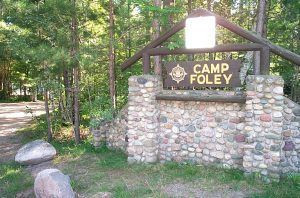 Granite outcroppings near a lake, perfect for a scenic summer camp experience
Granite outcroppings near a lake, perfect for a scenic summer camp experience
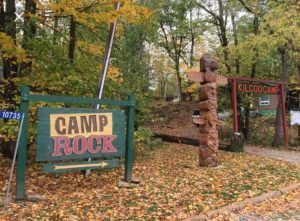 Camp Brock sign amidst lush greenery, indicating a nature-focused summer camp experience
Camp Brock sign amidst lush greenery, indicating a nature-focused summer camp experience
 Campers participating in an archery session, a popular summer camp activity enhancing focus and precision
Campers participating in an archery session, a popular summer camp activity enhancing focus and precision
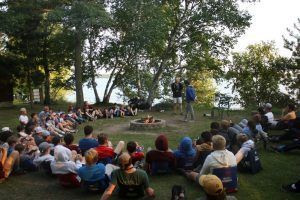 Boys gathered around a campfire, showcasing the camaraderie and friendship fostered at summer camps
Boys gathered around a campfire, showcasing the camaraderie and friendship fostered at summer camps
 Camp Foley records album, highlighting musical activities and creative expression at summer camp
Camp Foley records album, highlighting musical activities and creative expression at summer camp
FAQ: Is Camp Rock Real?
-
Is Camp Rock a real place?
No, Camp Rock is a fictional summer camp created for the Disney Channel movie. However, it is inspired by the many real summer camps that offer music programs. -
Are there summer camps similar to Camp Rock?
Yes, there are many summer camps that focus on music, performing arts, and other creative activities. These camps provide a similar environment where kids can develop their talents and make friends. -
What makes real summer camps different from Camp Rock?
Real summer camps often have a broader range of activities, less emphasis on drama, and a more rustic setting. They also prioritize safety and supervision, unlike the movie version. -
Can I find rock climbing or geology programs at summer camps?
Absolutely! Many summer camps, especially those in areas with natural rock formations, offer rock climbing, bouldering, and geology programs. -
How can I find a summer camp that focuses on nature and rockscapes?
You can search online for “nature camps,” “adventure camps,” or “rock climbing camps.” Look for camps located in mountainous or rocky areas. -
What are the benefits of attending a summer camp with rockscape activities?
These camps offer opportunities for physical activity, skill-building, connecting with nature, and learning about geology and ecology. -
Is it possible to recreate the Camp Rock experience at home?
While you can’t replicate the entire experience, you can create a fun music-themed event with friends, complete with singing, dancing, and songwriting. -
How can I incorporate rockscapes into my own backyard?
rockscapes.net provides inspiration and resources for creating beautiful outdoor spaces with natural stone. You can build rock gardens, pathways, water features, and more. -
Are there summer camps that offer financial aid or scholarships?
Yes, many summer camps offer financial aid or scholarships to help families afford the experience. Be sure to research and apply for these programs. -
What skills can kids gain from attending a summer camp?
Kids can gain valuable skills such as leadership, communication, problem-solving, resilience, and social skills. They also develop independence, self-confidence, and a greater appreciation for nature.
